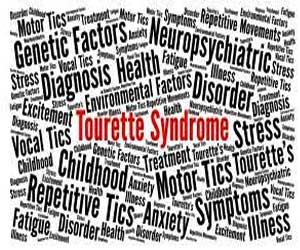- Home
- Editorial
- News
- Practice Guidelines
- Anesthesiology Guidelines
- Cancer Guidelines
- Cardiac Sciences Guidelines
- Critical Care Guidelines
- Dentistry Guidelines
- Dermatology Guidelines
- Diabetes and Endo Guidelines
- Diagnostics Guidelines
- ENT Guidelines
- Featured Practice Guidelines
- Gastroenterology Guidelines
- Geriatrics Guidelines
- Medicine Guidelines
- Nephrology Guidelines
- Neurosciences Guidelines
- Obs and Gynae Guidelines
- Ophthalmology Guidelines
- Orthopaedics Guidelines
- Paediatrics Guidelines
- Psychiatry Guidelines
- Pulmonology Guidelines
- Radiology Guidelines
- Surgery Guidelines
- Urology Guidelines
Functional magnetic resonance imaging neurofeedback may help treat Tourette Syndrome

Functional magnetic resonance imaging neurofeedback may help treat Tourette Syndrome. A study conducted by Yale researchers has trained adolescents with Tourette Syndrome to control their tics through an imaging technique that allows patients to monitor the function of their own brain in real-time. This study is published in Biological Psychiatry.
Characterized by repetitive movements or vocalizations known as tics, Tourette Syndrome is a neurodevelopmental disorder that plagues many adolescents. The researchers conducted the study to test a novel intervention – real-time functional magnetic resonance imaging (rt-fMRI) neurofeedback from SMA – for reduction of tics in adolescents with TS.
The study utilized real-time functional magnetic resonance imaging neurofeedback (rt-fMRI-NF), which is a relatively new technique with great potential for treating neuropsychiatric disorders, according to Michelle Hampson, senior author and associate professor in the Department of Radiology and Biomedical Imaging. “It is a non-invasive, neuroscience-based intervention for training human brain function towards healthier patterns,” Hampson said.
Although researchers have explored the clinical utility of Functional magnetic resonance imaging neurofeedback in treating conditions from depression to Parkinson’s disease, this study marks the first time that it has been tested as a clinical intervention for Tourette Syndrome.
The study enrolled individuals with Tourette Syndrome ages 11 to 19 years who displayed a certain frequency of tics as measured by the Yale Global Tic Severity Scale. Subjects were tasked with alternately raising and lowering activity in the supplementary motor area, a brain region associated with tics in Tourette Syndrome, which was displayed to them as a real-time graph during the brain imaging scans. The researchers found a significant reduction of tics in subjects during the training, which exceeded symptom improvements in a control condition (the control condition was designed to induce similar placebo and motivation effects but did not involve real neurofeedback), suggesting that the neurofeedback may be helpful for treating Tourette symptoms.
“Currently available treatments for tics in Tourette Syndrome include behaviour therapy and pharmaceuticals, but not everyone responds. This is the first study of its kind showing that Functional magnetic resonance imaging neurofeedback has potential as a treatment for Tourette Syndrome,” said Denis Sukhodolsky, co-author and associate professor in the Yale Child Study Center. This was an early-stage study with small sample size, but the promising results should encourage further research, said the investigators.
Other study authors are Christopher Walsh, William N. Koller, Jeffrey Eilbott, Mariela Rance, Robert K. Fulbright, Zhiying Zhao, Michael H. Bloch, Robert King, James F. Leckman, Dustin Scheinost, and Brian Pittman.

Disclaimer: This site is primarily intended for healthcare professionals. Any content/information on this website does not replace the advice of medical and/or health professionals and should not be construed as medical/diagnostic advice/endorsement or prescription. Use of this site is subject to our terms of use, privacy policy, advertisement policy. © 2020 Minerva Medical Treatment Pvt Ltd